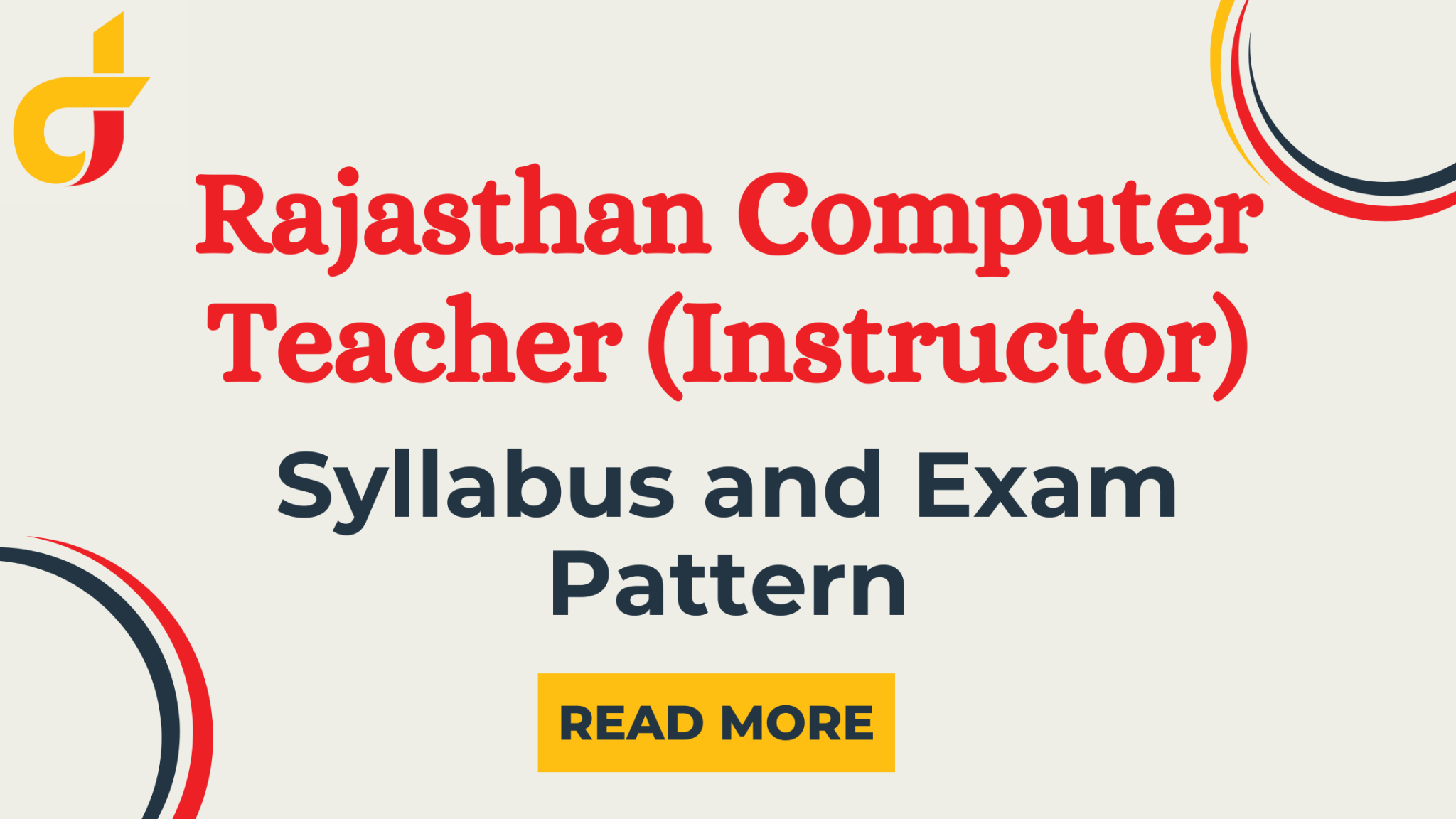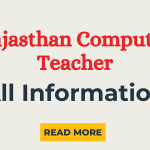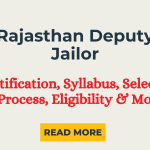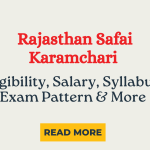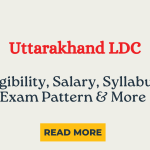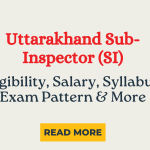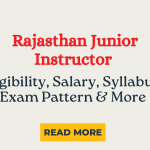The Rajasthan Subordinate Staff Selection Board (RSMSSB) is conducting a recruitment drive to fill approximately 4000 to 5000 vacancies for Basic and Senior Computer Teachers in the Education and Sanskrit Departments. This is a great opportunity for candidates with a computer diploma to become a computer teacher. Eligible candidates can apply online through the Rajasthan SSO portal.
Rajasthan Computer Teacher (Instructor) Vacancy 2024
| Recruitment Board | Rajasthan Subordinate Staff Selection Board (RSMSSB) |
|---|---|
| Category | Computer Teacher (Instructor) Vacancy |
| No. Of Vacancies | Approx between 4000-5000 |
| Name Of Post | Basic Computer Teacher & Senior Computer Teacher |
| Notification Out | Coming Soon |
| Age | 18-40 |
| Apply Mode | Online |
Application Fee for Rajasthan Computer Teacher 2024
| Category | Application Fee |
|---|---|
| General & Rajasthan CL OBC/MBC candidates | Rs. 450/- |
| Rajasthan NCL OBC/MBC & EWS candidates | Rs. 350/- |
| PWD/SC/ST/Family income less than 2.5 LPA | Rs. 250/- |
Rajasthan Computer Teacher (Instructor) Eligibility
The candidate should be 18 to 40 years old.
Educational Qualifications for Rajasthan Computer Teacher 2024
| Post | Qualification |
|---|---|
| Senior Computer Instructor | Master in Engineering (M.E.)/ Master in Technology (M.Tech.) in Computer Science (CS) Information Technology (IT) Electronics & Communications Engineering (ECE)/ Electrical Engineering (EE) Electrical Electronics Engineering (EEE) Electronics & Telecommunication Engineering (ETE)/ Electronics & Instrumentation Engineering (EIE) OR- M.Sc. in Computer Science (CS)/ Information Technology (IT) OR- Master in Computer Application (MCA)/B’ Level/’C’ Level OR- Any equivalent or higher qualification recognized by the Government |
| Basic Computer Instructor | Graduate and ‘A’ LEVEL/PGDCA (Minimum one year) OR- Bachelor in Engineering (B.E.) / Bachelor in Technology (B.Tech.) in Computer Science (CS) / Information Technology (IT) /Electronics & Communications Engineering (ECE) / Electrical Engineering (EE) / Electrical Electronics Engineering (EEE) / Electronic Instrumentation & Control (EIC) /Telecommunications & Instrumentation (TIE) OR- B.Sc. in Computer Science (CS)/Information Technology (IT)OR Bachelor in Computer Application (BCA) from a University established by the law in India OR Any equivalent or higher qualification recognized by the Government |
Age Relaxation for Rajasthan Computer Teacher 2024
| Category | Age Relaxation |
|---|---|
| UR Female | 5 years |
| SC/ST/OBC/MBC/EWS Males of Rajasthan | 5 years |
| SC/ST/OBC/MBC/EWS Females of Rajasthan | 10 years |
| PWD | 5 years |
Rajasthan Computer Teacher (Instructor) 2024 Syllabus
Paper-I Syllabus (Common for Basic and Senior Instructors)
| Subject | Topics |
|---|---|
| Art and Culture | Indian Art and Culture, Major Facts about the Culture of Indian States, Early Vedic Period, Art and Culture of Rajasthan, Geography and Culture of India |
| History | Important Wars in Indian History, Mughal Empire, Famous Places in India, Indian Folk Dances |
| Geography | Indian Geography, Types of Soil in India, Crops in India, Earth Movements, Earth’s Internal Structure, Earthquakes |
| General Science | Soil Pollution, Environmental Protection Act, Non-Renewable Energy, Development and Environment, Pollution and its Types, Constitution, Sports, General Science |
| Current Affairs of Rajasthan | Current Affairs, Computer, General Knowledge, Environment, Government Schemes, Disaster Management |
| General Ability | Logical Reasoning, Analytical Ability, Decision Making and Problem Solving, Data Interpretation (Class X level), General Mental Ability, Basic Numeracy (Class X level) |
Paper-II Syllabus for Senior Computer Instructor
| Subject | Topics |
|---|---|
| Mental Ability | Data Interpretation, Analytical Ability, Logical Reasoning, Data Sufficiency, Major Developments in Information Technology |
| Programming Fundamentals | C, C++, Java, DotNet, Artificial Intelligence (AI), Machine Learning, Python and Blockchain Programming, Data Types, Scope of Variables, Precedence of Operators, Control Flow, Functions, Pointers, Structures and Unions, Enumerated Data Types, File Handling, Command-Line Arguments |
| Object-Oriented Programming | Objects and Classes, Inheritance, Polymorphism, Event and Exception Handling, Files and Streams |
| Data Structures and Algorithms | Abstract Data Types, Arrays as Data Structures, Linked List vs. Array for Storage, Stack and Stack Operations, Queues, Binary Trees, Binary Search Trees, Graphs and their Representations, Sorting and Searching, Symbol Table, Tree Traversals, Branch and Bound and Greedy Methods, Complexity of Algorithms |
| Digital Logic Systems | Boolean Expressions, K-Maps, TTL and CMOS Logic Families, Combinational Logic Design using Half/Full Adders, Subtractors, Multiplexer, Synchronous Sequential System Design |
| Computer Organization and Architecture | Von-Neumann Architecture of Computers, Registers and Micro-Operations, Control Logic, Processor Addressing and Bus Organization, Processor Input/Output and DMA, Memory Organization and Cache Coherence |
| Operating Systems | CPU Scheduling, Deadlocks, Memory Management, File Systems, Disk Scheduling, Client-Server Architecture in Distributed Environment, RPC, Process, Threads, Synchronization, Real-Time OS, Clock Synchronization, Task Scheduling, System Initialization, Booting, User Accounts, Backup and Restore, Shell Programming for Linux |
| Database Management System | E-R Models, Relational Algebra, Calculus and Databases, Integrity Constraints, Triggers, Normalization, Indexing, Transaction Processing, Concurrency Control, RDBMS |
| Software Engineering | Phases of System Development Life Cycle, System Modeling, Software Requirement Specifications, DFDs, Software Testing, Software Project |
| Data and Computer Networks | Evolution of Networking, Data Communication Terminologies, Transmission Media, Network Devices, TCP/IP & OSI/ISO Reference Models, Functions of Different Layers, Characteristics of Physical Media, Multiplexing, LAN Technologies, IP Protocol, Routing, Congestion Control, TCP and UDP, DNS |
| Network Security | Groups, Rings and Fields in Finite Space, Euler and Fermat’s Theorem, Primality Testing, Security Services and Mechanisms, Symmetric and Asymmetric Encryption, DES, AES, IDEA, RSA Algorithms, Key Management, Message Authentication, Hashing, Email Security, Viruses, Trusted Systems, Networking (LAN, WAN), Ethical Hacking |
| Basics of Communication | Channel Capacity, Attenuation, Communication Impairments, Propagation of RM Waves, PCM and Delta Modulation, WDM, GSM and CDMA Based Communication Systems |
| Web Development | HTML/DHTML, Web Page Authoring Using HTML, Document Object Model, Dynamic HTML, Cascading Style Sheet (CSS), XML, PHP, JavaScript |
Paper-II Syllabus for Basic Computer Instructor
| Subject | Topics |
|---|---|
| Mental Ability | Data Interpretation, Analytical Ability, Logical Reasoning, Data Sufficiency, Major Developments in Information Technology, Decision Making and Problem Solving |
| Fundamentals of Computer | Overview of Input and Output Devices, Pointing Devices and Scanner, Data Representation (Digital vs. Analog, Number System, Decimal, Binary, Hexadecimal), Data Processing, Concept of Files and its Types |
| Programming Fundamentals | C, C++, Java, DotNet, AI, Machine Learning, Python, Blockchain Programming, Principles and Programming Techniques, Introduction to Object-Oriented Programming, Integrated Development Environment and its Advantages |
| Data Processing | Word Processing (MS Word), Spreadsheet Software (MS Excel), Presentation Software (MS PowerPoint), DBMS Software (MS Access) |
| Data Structures and Algorithms | Algorithms for Problem-Solving, Abstract Data Types, Arrays as Data Structures, Linked List vs. Array for Storage, Stack and Stack Operations, Queues, Binary Trees, Binary Search Trees, Graphs, Sorting and Searching, Symbol Table, Data Structures Using C and C++ |
| Communication and Network Concepts | Introduction to Computer Networks, Network Layers/Models, Networking Devices, Fundamentals of Mobile Communication |
| Network Security | Protecting the Computer from Virus and Malicious Attacks, Firewalls, Backup and Restoring Data, Networking (LAN and WAN), Security, Ethical Hacking |
| Computer Organization and Operating System | Basic Structure of Computers, Computer Arithmetic Operations, Central Processing Unit and Instructions, Memory Organization, I/O Organization, Operating Systems Overview, Finding and Processing Files, Process Management |
| Database Management Systems | Overview of Database Management, Architecture of Database Management, Relational Database Management, Database Design, Manipulating Data, NoSQL Database Technologies, Selecting Right Database |
| System Analysis and Design | Introduction, Requirement Gathering and Feasibility Analysis, Structured Analysis, Structured Design, Object-Oriented Modeling Using UML, Testing, System Implementation and Maintenance, Software Development Approaches |
| Internet of Things and its Application | Internet Technology and Protocol, LAN, WAN, MAN, Search Services/Engine, Online/Offline Messaging, World Wide Web Browsers, Web Publishing and Browsing, Social Media, Information Technology Act, Cyber Laws, Mobile Apps |
Rajasthan Computer Teacher (Instructor) 2024 Exam Pattern
| Paper | Subject | Questions | Marks | Duration |
|---|---|---|---|---|
| Paper-I | Art & Culture, History, Geography, General Science, & Current Affairs of Rajasthan | 100 | 100 | 2 hours |
| General Ability: | ||||
| – Logical Reasoning & Analytical Ability | ||||
| – Decision Making & Problem Solving | ||||
| – General Mental Ability | ||||
| – Basic Numeracy (Class X Level) | ||||
| – Data Interpretation (Class X Level) | ||||
| Paper-II | Pedagogy, Mental Ability, & Professional Subject | 100 | 100 | 2 hours |
| Total | 200 | 200 | 4 hours |
- There will be a negative marking of 1/3 for each wrong answer.
How to Prepare for Computer Teacher Recruitment with Dhurina App
Dhurina App offers live coaching for computer teacher exam preparation, providing the best guidance and continuous motivation to qualify for the exam.
- Best Online Coaching Course: Dhurina App is known for bringing the best courses for various exam preparations.
- Live Classes by Expert Faculty: Live classes are conducted by experienced faculty, covering the entire syllabus strategically and systematically, along with discussing all tricks and techniques.
- Reliable Practice Material: The course includes the most reliable practice materials, study materials, and mock tests.
Steps to use Dhurina App:
- Install Dhurina App: Download Dhurina App from the Play Store.
- Register: Open the app, enter your name, mobile number, and password to register.
- Login: Generate an OTP with your mobile number, click on proceed, and log in.
Conclusion
We hope this article has been helpful and informative for you. If you have any doubts, feel free to ask in the comments. Download the Dhurina App for all government exam information and strengthen your preparation!


